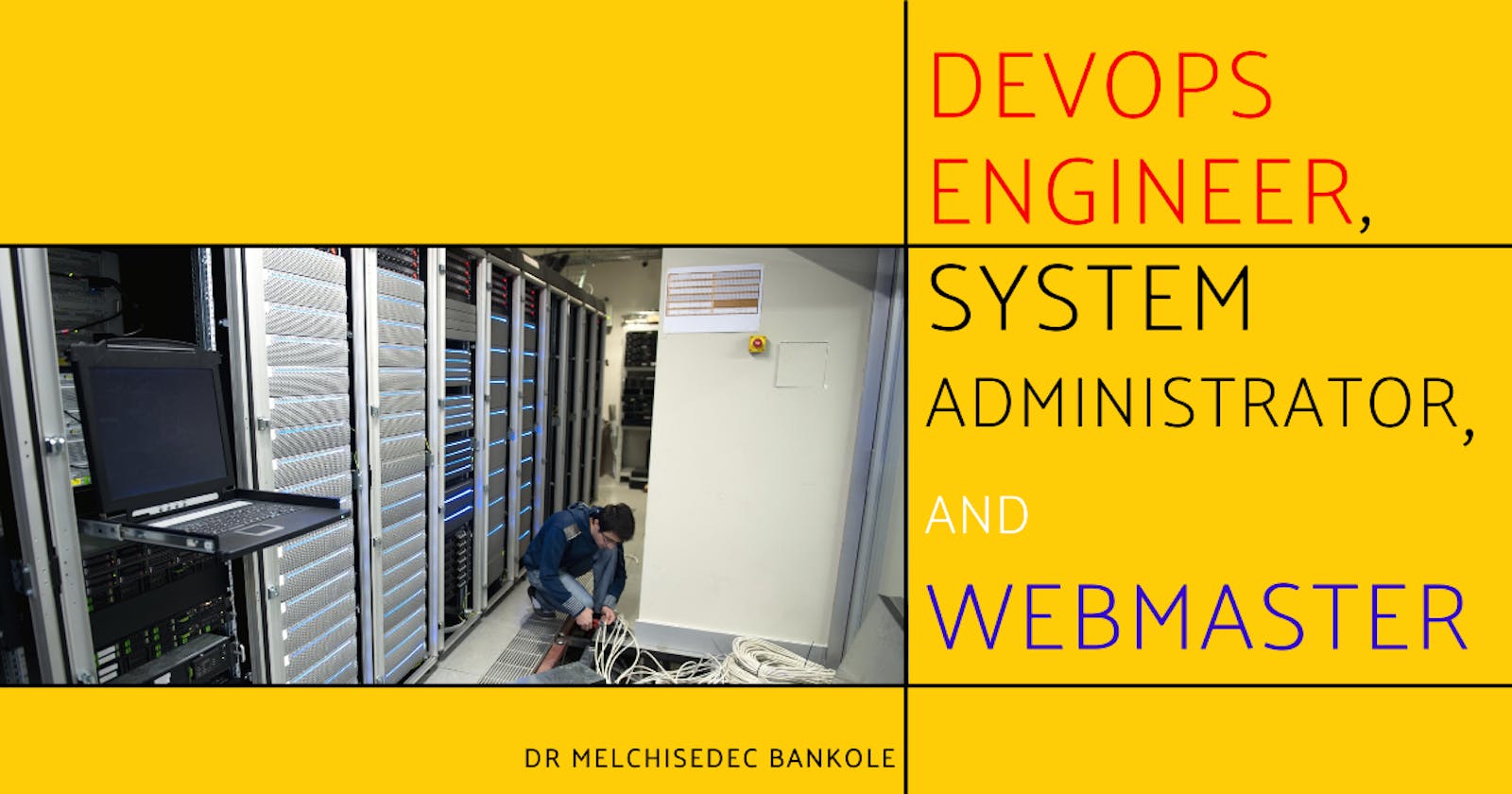The Distinctions Between DevOps Engineers, System Administrators, and Webmasters
In today's technology-driven world, businesses rely heavily on skilled professionals to manage and maintain their digital infrastructure. The internet runs on a complex network of interconnected parts. But behind the scenes, a dedicated team ensures everything runs smoothly. Among these crucial players are DevOps engineers, system administrators, and webmasters, each with distinct yet complementary roles. While these roles may seem similar at first glance, they each have distinct responsibilities and require a unique set of skills.
Let's look into the nitty-gritty of these professions and the skillsets they require.
DevOps Engineers: The Orchestrators of Software Delivery
Imagine a well-oiled machine – that's the ideal scenario DevOps engineers strive for in the software development lifecycle. They bridge the gap between development and operations teams, automating tasks and creating a seamless pipeline for building, testing, and deploying applications.
Essential Skills for DevOps Engineers:
Automation Skills: Proficiency in scripting languages such as Python, Bash, or PowerShell is essential for automating repetitive tasks and workflows. Proficiency in tools like Ansible or Puppet empowers them to configure and manage infrastructure efficiently.
Continuous Integration/Continuous Deployment (CI/CD): Experience with CI/CD pipelines and tools like Jenkins, GitLab CI, or CircleCI to automate the build, test, and deployment processes.
Containerization and Orchestration: Familiarity with containerization technologies like Docker and container orchestration platforms such as Kubernetes for managing containerized applications.
Infrastructure as Code (IaC): Knowledge of tools like Terraform or Ansible to provision and manage infrastructure resources programmatically.
Monitoring and Logging: Understanding of monitoring tools like Prometheus, Grafana, or Nagios for tracking system performance and logging tools like ELK (Elasticsearch, Logstash, Kibana) stack for centralized log management.
Collaboration and Communication: Strong interpersonal skills and the ability to collaborate effectively with cross-functional teams are essential for DevOps engineers to facilitate seamless communication and teamwork. DevOps engineers act as a bridge between developers and operations, so strong communication is key.
Coding and Scripting: Languages like Python and Bash allow DevOps engineers to automate repetitive tasks, saving time and reducing errors.
Cloud Savvy: Understanding platforms like AWS or Azure is crucial as cloud computing becomes increasingly central to modern infrastructure.
CI/CD Pipelines (Continuous Integration/Continuous Delivery): Setting up and maintaining these pipelines ensures smooth and frequent software updates.
System Administrators: The Guardians of the IT Infrastructure
System administrators are the backbone of any IT department. They ensure the smooth operation of servers, networks, security systems, and user accounts. Think of them as the IT guardians, constantly monitoring and troubleshooting to keep everything running efficiently.
Skills Every System Administrator Needs:
Operating System Proficiency: In-depth knowledge of operating systems such as Linux/Unix and Windows, including system installation, configuration, and administration tasks.
Networking Fundamentals: Understanding of TCP/IP networking protocols, DNS, DHCP, firewalls, and routing concepts to manage network infrastructure effectively.
Security Practices: Familiarity with security best practices, including access control, encryption, intrusion detection/prevention systems (IDS/IPS), and vulnerability management. Staying up-to-date on cybersecurity threats and implementing best practices is vital to protect sensitive data.
Backup and Recovery: Experience in implementing backup solutions and disaster recovery strategies to safeguard data and ensure business continuity.
Troubleshooting Skills: Strong problem-solving abilities and the capacity to diagnose and resolve technical issues promptly to minimize downtime.
Scripting and Automation: Basic scripting skills in languages like Shell, PowerShell, or Python to automate routine administrative tasks and improve operational efficiency.
Server Administration Tools: Familiarity with tools designed for server management is vital for efficient configuration and troubleshooting.
Problem-Solving Prowess: System administrators are the go-to people when things go wrong. Top-notch analytical and problem-solving skills are a must.
Webmasters: The Curators of the Online Experience
Traditionally, a webmaster was responsible for managing and maintaining websites, including content updates, website design, performance optimization, and user experience enhancements. While the term "webmaster" may be less common today, the responsibilities associated with it have evolved to encompass a broader range of tasks related to web development, administration, and optimization.
Webmasters are the caretakers of a website. They oversee its day-to-day operations, ensuring content is fresh and engaging, the site functions flawlessly, and users have a positive experience.
Skills Needed to Thrive as a Webmaster:
Web Development Skills: Proficiency in web technologies such as HTML, CSS, JavaScript, and popular web frameworks/libraries like React, Angular, or Vue.js for developing and maintaining websites.
Content Management Systems (CMS): Familiarity with CMS platforms like WordPress, Joomla, or Drupal for content creation, publishing, and website management.
Search Engine Optimization (SEO): Understanding of SEO principles and techniques to improve website visibility, organic traffic, and search engine rankings.
Web Analytics: Knowledge of web analytics tools like Google Analytics or Adobe Analytics to track website performance, user behavior, and conversion metrics.
Responsive Web Design: Ability to design websites that are responsive and optimized for various devices and screen sizes to provide a seamless user experience across platforms.
Security Awareness: Awareness of web security best practices, including secure coding practices, SSL/TLS implementation, and protection against common web vulnerabilities like cross-site scripting (XSS) and SQL injection.
User Experience (UX) Principles: Webmasters should keep the user in mind, creating a website that's intuitive, easy to navigate, and visually appealing.
Noteworthy:
A Symphony of Skills
The world of web development functions thanks to the collaborative efforts of these three distinct roles. While DevOps engineers streamline software delivery, system administrators keep the infrastructure humming, and webmasters ensure a user-friendly online experience. Understanding these roles and their required skillsets can help you navigate your own tech career path, or appreciate the intricate work that goes into every website you visit.
